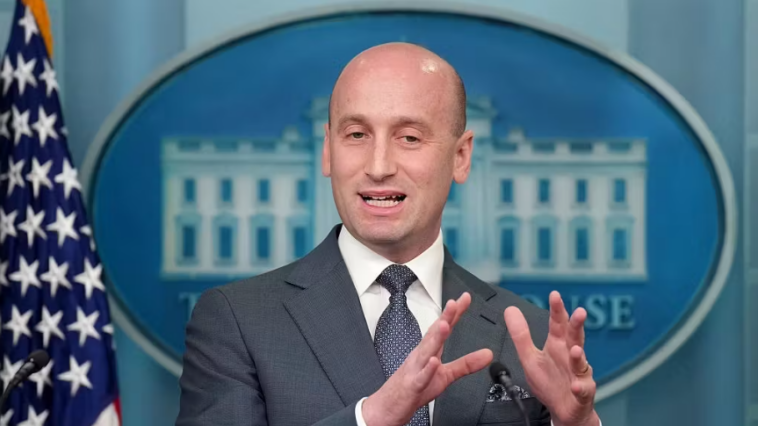White House Deputy Chief of Staff Stephen Miller made it clear this week that small business relief won’t come through temporary exemptions or government handouts—but through the most significant tax cut in American history.
Speaking at a press briefing on Thursday, Miller outlined the administration’s plan to deliver lasting relief by permanently extending and expanding the Trump-era tax cuts, which are set to expire at the end of this year. The proposal includes full expensing for capital investments, allowing companies to immediately deduct 100% of domestic investment costs from their tax liability—a move designed to fuel American production and job creation.
“This is how you truly help small businesses,” Miller said. “Not by patching things with short-term bailouts, but by making it cheaper and easier to grow and hire right here in the United States.”
The announcement comes as some business groups, including the U.S. Chamber of Commerce, have urged the White House to consider tariff exemptions for small firms facing increased costs due to the administration’s America First trade policies. Miller rejected those calls, arguing that the long-term benefits of reshoring supply chains and restoring American manufacturing far outweigh any short-term disruptions.
“Any company that invests in America will be rewarded,” he said. “That’s the deal. That’s the future.”
Miller also took direct aim at congressional Democrats, accusing them of preparing to vote against the tax relief package and, by extension, supporting a tax hike on middle-class families and small business owners. He framed the upcoming vote as a defining moment for lawmakers—either side with working Americans or defend the globalist economic model that outsourced jobs and hollowed out U.S. industries.
The proposed tax legislation is being fast-tracked through Congress, with a target date of July 4 for passage. With narrow Republican majorities in both chambers, every vote will count.
The administration’s message is clear: if you’re building in America, hiring Americans, and investing in the future of the country, you will benefit. And if you’re expecting a carve-out while continuing to offshore operations, don’t count on it.
This approach fits within President Trump’s broader economic agenda—one that focuses not just on growth, but on where that growth happens. By reinforcing domestic manufacturing, reducing tax burdens on small businesses, and cutting out bureaucratic red tape, the administration aims to rebuild the economic engine from the bottom up.
“This isn’t just a tax cut,” Miller concluded. “It’s a declaration of economic independence.”

